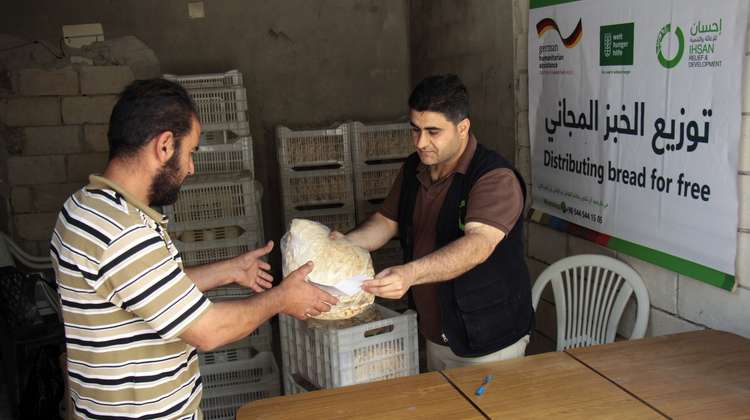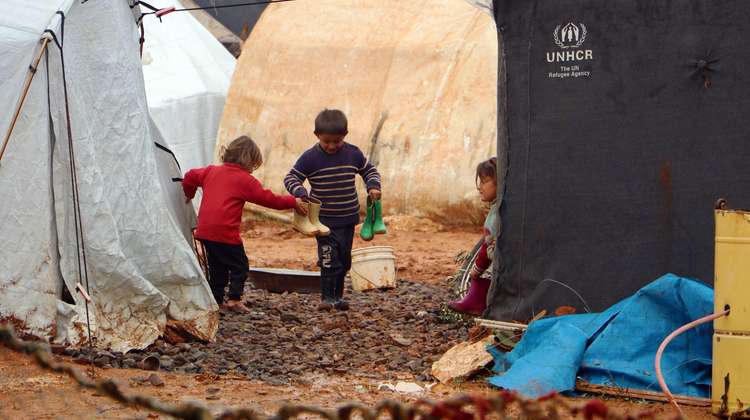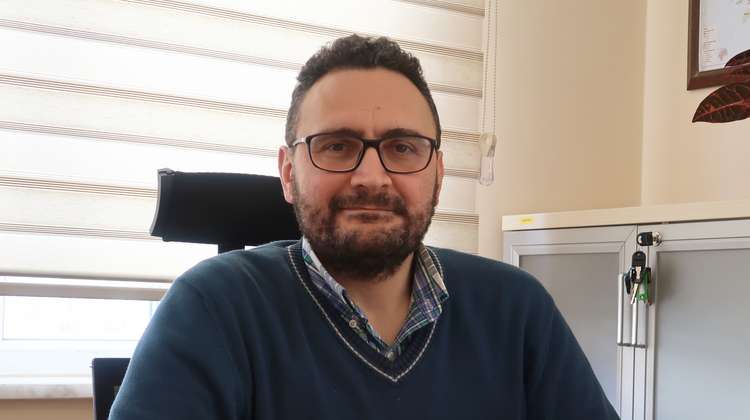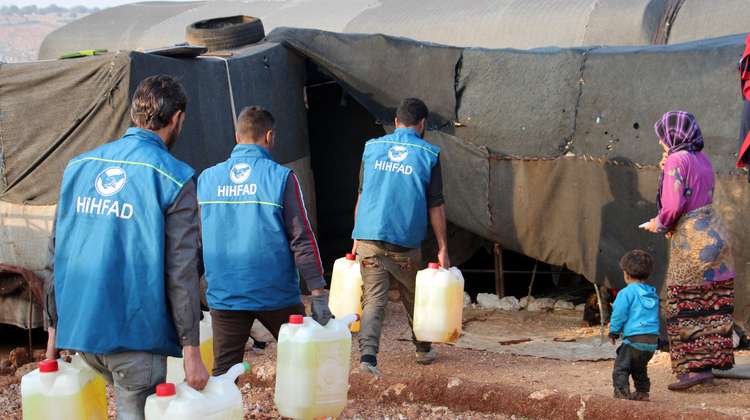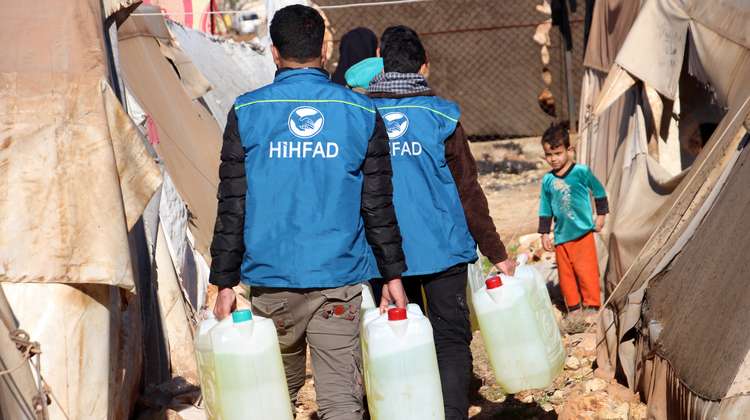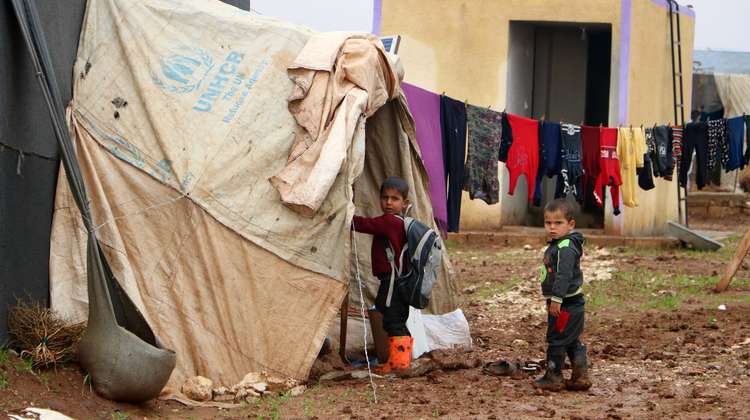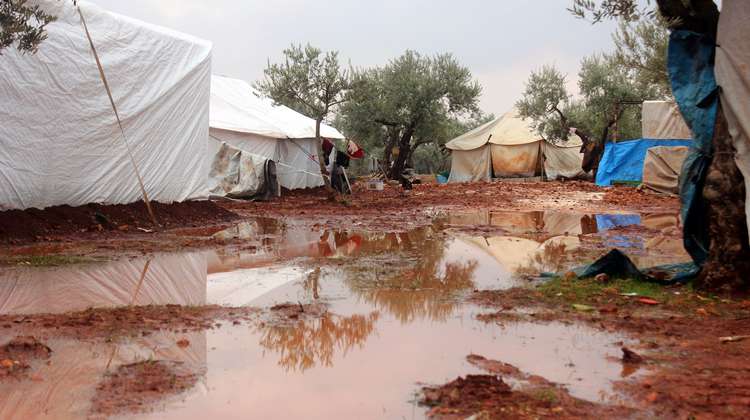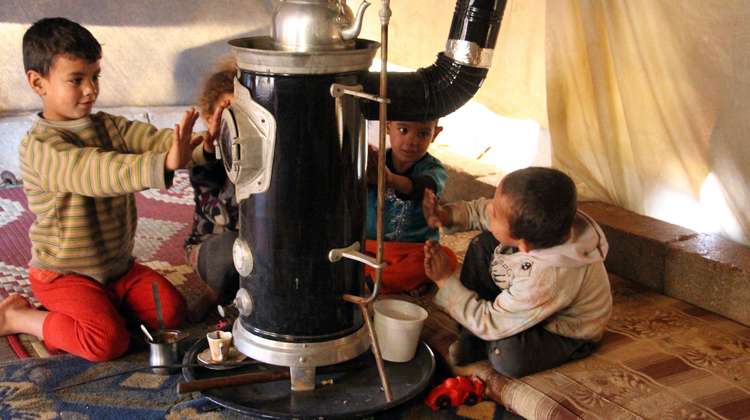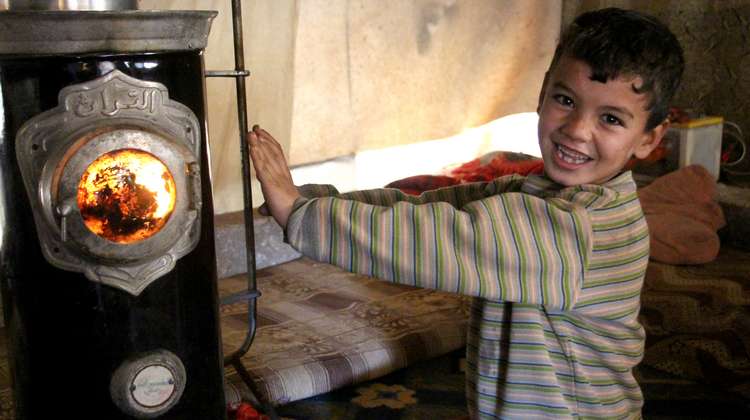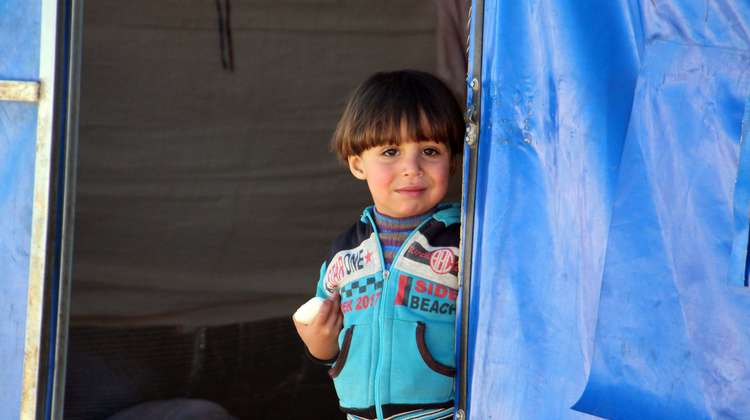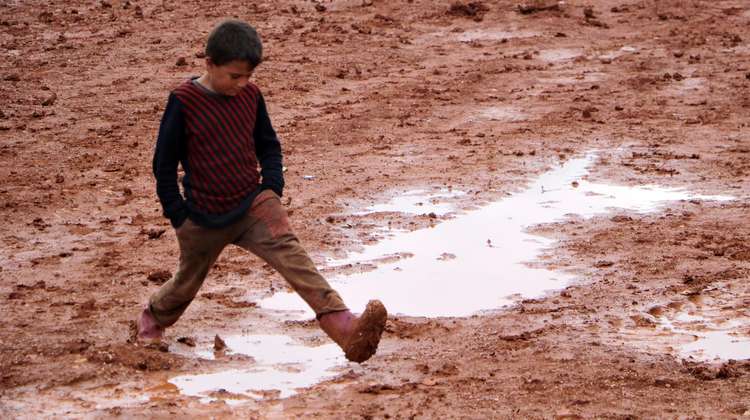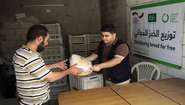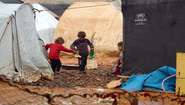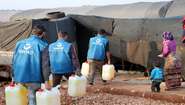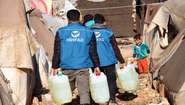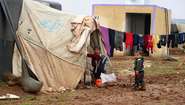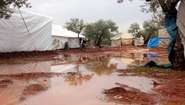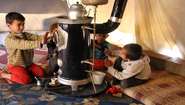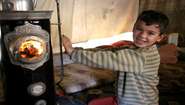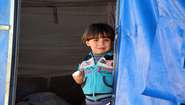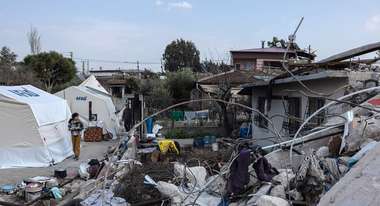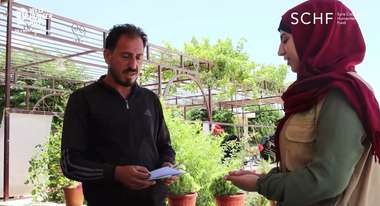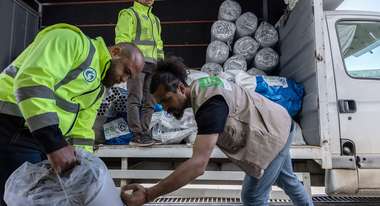Syria: The Supply Conditions Are Worsening
Rain, cold, hunger, rising prices – the situation for internally displaced people from the civil war in north-west Syria is becoming increasingly dire. More than 350,000 people have fled from the disputed areas in the province of Idlib since the start of December, and 4 out of 5 of those fleeing are women. Welthungerhilfe is therefore extending its assistance for internally displaced people (IDP).
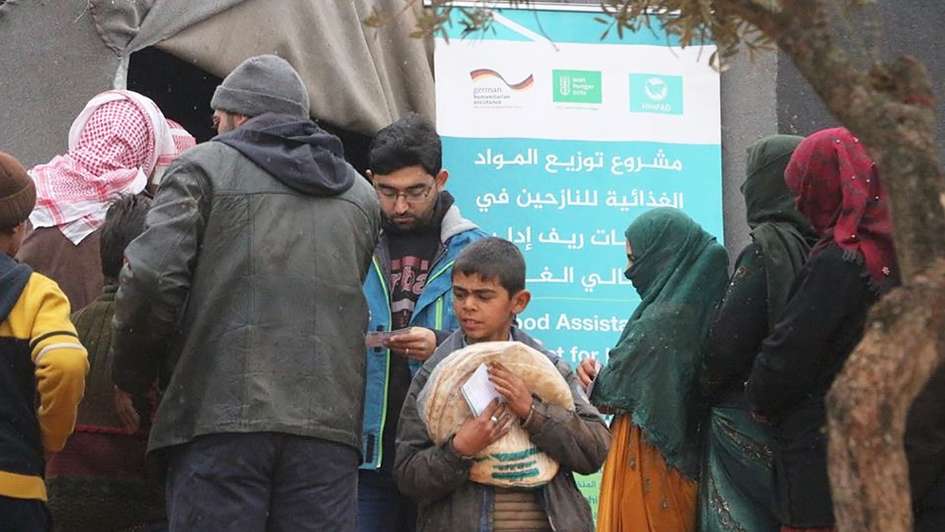
“The overcrowded camps for internally displaced people are literally sinking into the mud. The temporary housing offers little protection against the frost during the night. Many displaced people can no longer afford fuel for their stoves. To make a fire to keep themselves warm, people are now using whatever they can find, including plastic waste”, says Halil Kurt, a Welthungerhilfe Programme Coordinator, who is organising assistance on site.
The price of diesel fuel in Idlib has recently risen by over 20 percent. For this reason, Welthungerhilfe has distributed fuel to 3,000 families in five IDP camps, and a further 3,200 households have received vouchers for 150 litres of diesel. This is enough to keep stoves warm for two months.
“If the petrol prices rise further, there is also a risk of bottlenecks in supply lines for refugees, e.g. transportation of flour and bread. Nonetheless, bread distribution has been repeatedly interrupted due to the security situation. The intensive air attacks and the advance of Syrian troops have made reliable bread distribution impossible for the last two weeks”, says Halil Kurt.
Welthungerhilfe is reacting swiftly to the worsening emergency and supplying a further 55,000 displaced people with bread and food vouchers through Syrian partner organisations. The new assistance measures have a budget of 200,000 euros.
Programme Coordinator Halil Kurt (English speaker) and Regional Director Dirk Hegmanns (German/English speaker) are available for interviews.
Download Press Images
Usage note: Please note that the pictures may only be used in a Welthungerhilfe context and may not be passed on to third parties. Images must bear the credit copyright "Photographer"/Welthungerhilfe. No long-term archiving. Please delete pictures after use!
Welthungerhilfe is one of the largest private aid organisations in Germany; politically independent and non-denominational. It is fighting for “Zero Hunger by 2030”. Since it was founded in 1962, more than 9,300 overseas projects in 70 countries have been supported with 3.71 billion euros. Welthungerhilfe works on the principle of empowering people to help themselves: from rapid disaster relief to reconstruction and long-term development cooperation projects with national and international partner organisations.





